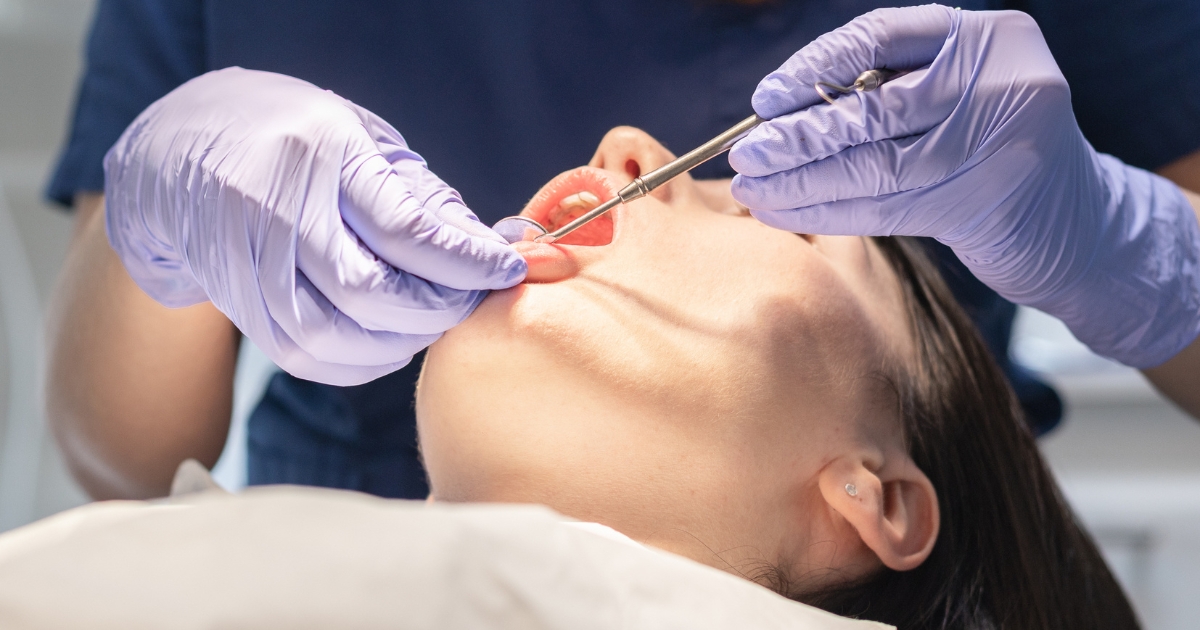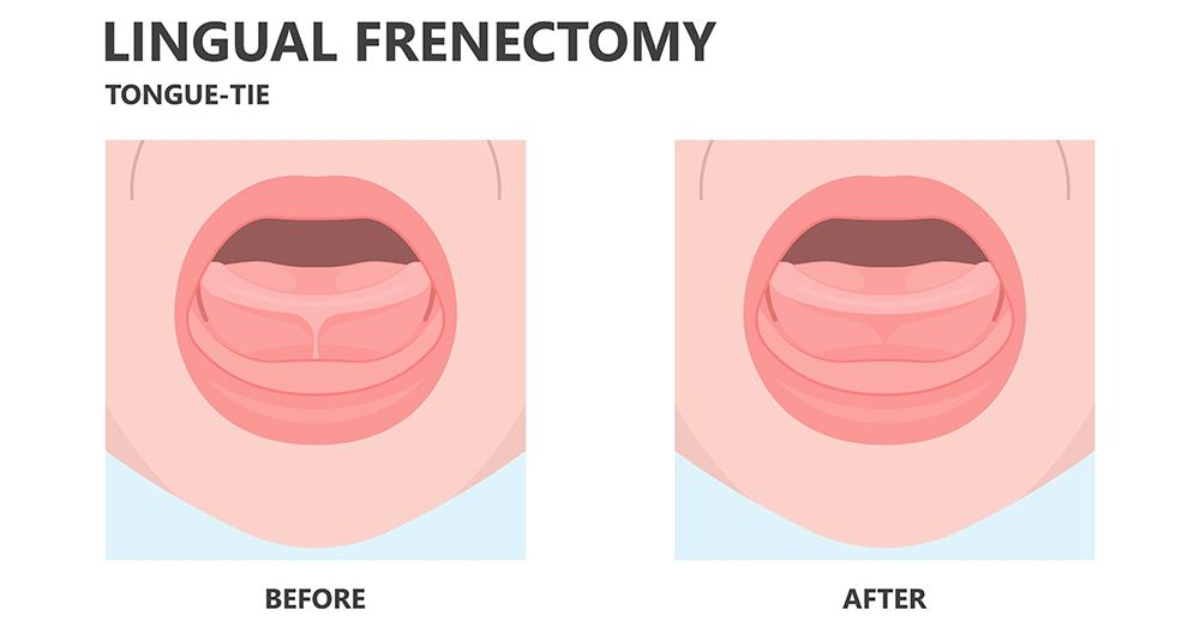Call Us Today 817-737-7668

A frenectomy is a minor surgical procedure that removes or modifies the frenulum, a small tissue band connecting different parts of the mouth. While many associate this procedure with infants and children, adults may also need it. Issues like gum recession, speech difficulties, or discomfort with dentures can make a frenectomy necessary. Ignoring these problems can lead to oral health complications or persistent discomfort.
This blog will explore the common causes of adult frenectomies, signs that indicate you might need one, and the potential benefits of the procedure. Understanding these factors can help you make an informed decision about your oral health.
What Is a Frenectomy?
A frenectomy involves the removal or adjustment of the frenulum to improve oral function and health. The procedure is quick, safe, and requires minimal recovery time. Dentists perform it under local anesthesia, making it virtually painless.
There are three main types of frenectomies:
- Labial Frenectomy: Adjusts the tissue connecting the upper or lower lip to the gums. This helps fix issues like a gap between the front teeth or discomfort from dentures.
- Lingual Frenectomy: Targets the tissue under the tongue (lingual frenulum). Restricted tongue movement can cause speech problems or swallowing difficulties.
- Buccal Frenectomy: Modifies the frenulum connecting the cheeks to the gums. This procedure is less common but can help improve denture fit and oral comfort.
A frenectomy helps prevent oral health complications and enhances overall mouth function. Dentists often recommend it when conservative treatments fail to provide relief.
Common Causes for Adult Frenectomy
Several oral health conditions might lead to a frenectomy in adulthood. Here are the most common causes:
- Oral Health Issues:
Gum recession or periodontal disease can worsen if the frenulum pulls on the gum tissue. A frenectomy can help protect gum health by reducing unnecessary tension. - Speech Difficulties:
A tight or short lingual frenulum (tongue-tie) can interfere with proper speech. This condition makes it hard to pronounce certain sounds. A lingual frenectomy can restore tongue mobility. - Orthodontic Concerns:
Orthodontic treatments like braces can close gaps between teeth, but an overactive frenulum can reverse the results. Dentists may suggest this treatment to maintain proper alignment. - Prosthetic Fit Problems:
Denture wearers might struggle with discomfort if the frenulum causes improper denture seating. Removing or adjusting the frenulum can improve fit and stability. - Pain or Discomfort:
A tight or thick frenulum can cause oral discomfort or jaw tension. A frenectomy can ease this pain, enhancing oral function.
Signs That You Might Need a Frenectomy
Recognizing the signs early can prevent complications and improve oral comfort. Here are some indicators:
- Difficulty Speaking:
Struggling to pronounce specific sounds or experiencing speech limitations may signal a tongue-tie. - Gum Discomfort or Recession:
If the frenulum pulls on the gum tissue, it can cause irritation or lead to gum recession. - Persistent Gap Between Front Teeth (Diastema):
An excessive labial frenulum can create or maintain a space between the upper front teeth. - Pain with Dentures:
Denture wearers may feel irritation or notice their dentures slipping due to frenulum-related issues. - Restricted Tongue Movement:
A lingual frenulum that limits tongue mobility can cause discomfort when swallowing or eating.
If you experience these symptoms, consult a dental professional to determine if a frenectomy could help.
Benefits of a Frenectomy for Adults
A frenectomy Dallas provides several benefits for adults dealing with frenulum-related issues. Here’s how this procedure can improve your oral health:
- Improved Oral Health:
The procedure helps reduce gum tension, minimizing the risk of gum recession and periodontal disease. Removing the problematic tissue supports healthier gums and teeth. - Enhanced Speech:
Restricted tongue movement can impair speech clarity. A lingual frenectomy can restore tongue mobility, improving articulation and making communication easier. - Better Orthodontic Results:
Orthodontic treatments can close gaps between teeth, but a persistent frenulum might reverse these changes. A frenectomy ensures long-term orthodontic success by eliminating this interference. - Increased Comfort:
Oral discomfort caused by a tight or thick frenulum can affect daily activities like speaking, eating, and wearing dentures. This procedure alleviates tension and discomfort, enhancing overall mouth function. - Aesthetic Improvements:
A labial frenectomy can help close gaps between the upper front teeth, improving your smile. Removing the frenulum can also provide a more symmetrical gumline.
A frenectomy is a simple, safe procedure that can significantly improve oral health and comfort. Adults may need it to address gum issues, speech difficulties, or orthodontic concerns. Early intervention helps prevent complications like gum recession, persistent gaps, or denture discomfort.
If you experience symptoms like restricted tongue movement or speech challenges, consult our dentists for an evaluation. A frenectomy can enhance your smile, speech, and oral function, improving your quality of life in the long run.





